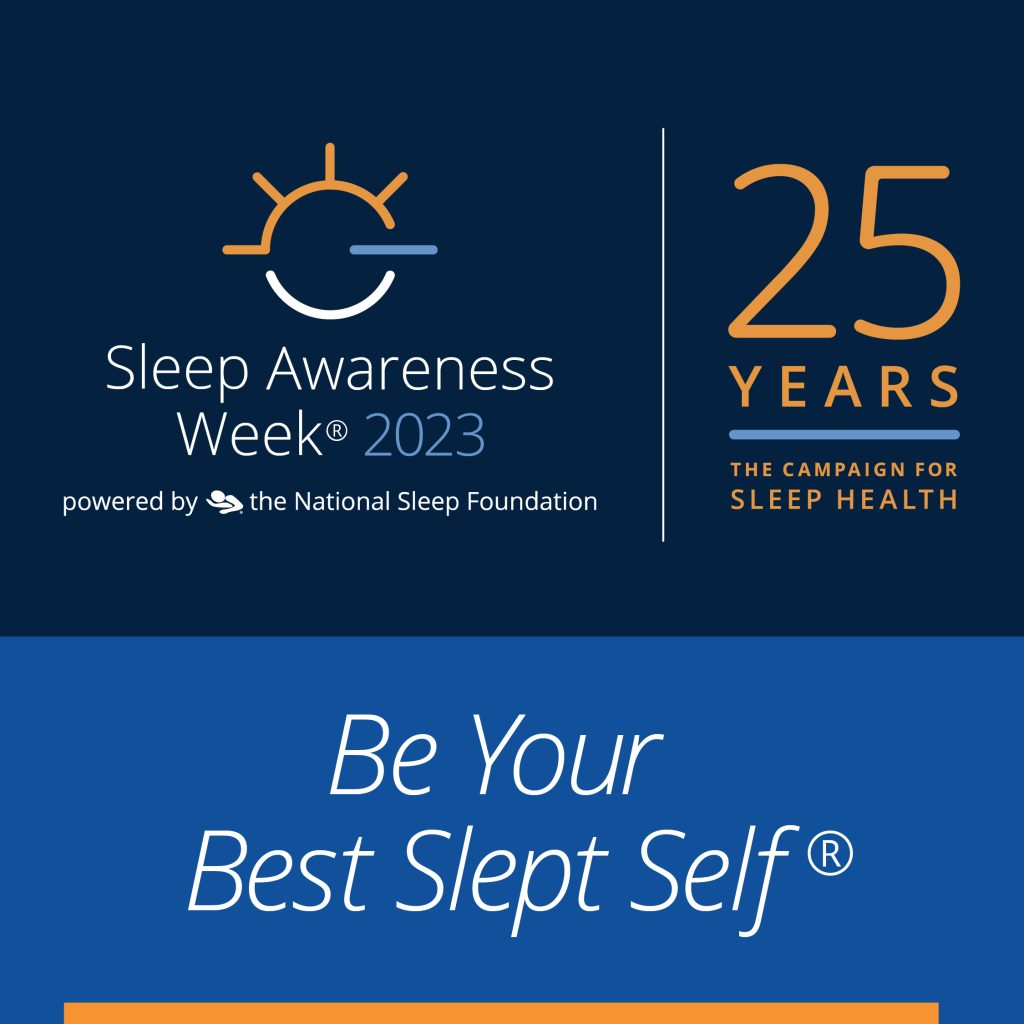Did you know that March 12–18 is National Sleep Awareness Week ®
Sleep Awareness Week is an annual campaign that aims to raise awareness about the importance of good sleep habits and the impact of sleep on overall health and well-being.

Why is Sleep Important?
One in five Americans sleeps less than six hours a night—a trend that can have serious personal health consequences. Sleep deprivation increases the risk for a number of chronic health problems, including obesity, diabetes, and heart disease.1 As anyone who has gone without sleep knows, a lack of rest is an impediment to one’s productivity at work, personal happiness, and overall health.
Sleep is the single most effective thing we can do to reset our brain and body health each day. How you feel while you are awake depends in part on what happens while you are sleeping. During sleep, your body is working to support healthy brain function and maintain your physical health.
If you have trouble sleeping1
Check for underlying causes. Some conditions or medications may be interfering with your sleep patterns. Treating a condition or adjusting a medication may be all it takes to restore better sleep.
Practice good sleep hygiene. Use your bed for sleep and sex only, block as much noise and light as possible, go to bed and wake at the same times each day, and get out of bed if you haven’t fallen asleep within 20 minutes.
Nap if needed. If you like to nap, get your daytime shut-eye in midday. Naps late in the day can interfere with sleep later. If your problem is difficulty getting to sleep at night, then not napping can make you sleepier at bedtime and more likely to stay asleep.
Exercise earlier, not later. Exercise stimulates the body and brain, so make sure you finish exercising at least three hours before turning in.
Watch your diet. stay away from foods that cause heartburn. Ban caffeine-rich food and drinks (chocolate, tea, coffee, soda) at least six hours before bedtime. Don’t drink alcohol for at least two hours before bed.
See a sleep specialist. If your own efforts aren’t working, you’ll want the help of a sleep professional to both diagnose your problem and propose behavioral and possibly drug treatments.
1 Harvard Medical School https://www.health.harvard.edu/topics/sleep
